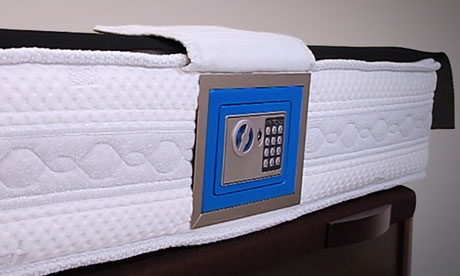One of the big financial challenges that most people face is figuring out what to do with money once they have it. Should they spend it or save it? If they’re going to save it, where should they put it?

But if you have a relatively large sum of money, one of the best options is investing it in a high-interest savings account. Why would you want to put your money into this type of account, and what are the benefits?
How it Works
The basic idea behind a high-interest savings account is very simple. You open an account with a bank or a financial institution. Then you deposit a certain amount of money into the account. The bank then pays you an interest rate that is determined at the outset or by market conditions.
The interest rate is multiplied by the amount of money you have in the account, and this determines how much interest you receive. The next time that interest is calculated, the interest rate is multiplied by the new balance, including the amount that was deposited last time for interest. In this way, your account balance will continue to grow even if you don’t deposit another dime into your account.
The Cash Approach
A lot of folks out there have “simple” savings accounts (regular bank accounts with a minuscule interest rate), or even just some cash in the house stored somewhere. This is truly the way of our grandparents – no banks, no interest, no fees, just cold, hard cash. However, as simple as this method is, it’s really not the best way to handle your finances.
The rate of inflation hovers between 2% and 5% a year; a thousand dollars in cash may have decreased nearly 5% in value over a year, as opposed to a high interest fund that can outrun inflation. The biggest reservation people have with this idea is that their cash leaves their hands, and becomes less liquid. While this may be true in some ways, it’s a far better investment to place your money somewhere it can grow by itself, or at the very least, not depreciate in value.
These are the kinds of financial decisions that should be taught in school. Instead, young professionals are thrown out into the world with hardly a sense of direction. And we wonder when they go bankrupt within just a few years of graduating.
Compared to Other Options
There are definitely a lot of options out there for you to choose from if you have some extra money to deal with. The high-interest savings account is superior to many of them in one way or another. The rates will vary depending on the type of account. An online savings account like the Discover Bank online savings account provides 0.80% APY while the national average is 0.08%.
Accounts like this are good as “emergency funds” that will help cover an unforeseen emergency.
You have to ask yourself, is having your money in your hands really more important than a chance to grow it, safely and securely? The answer should be no.
Another option that many people choose is to invest money into mutual funds, stocks, or bonds. There is definitely nothing wrong with investing, but there is a certain amount of risk that comes with these activities. When you put money into stocks or mutual funds, you could theoretically lose your entire investment. If you are close to retirement or you are risk averse, this will not be acceptable to you.
If you put money into an online savings account, you can feel confident that it will be there when you need it. In fact, savings accounts with banks in the U.S. are guaranteed by the Federal Deposit Insurance Corporation or FDIC, which is a government agency. This means that your deposit is essentially guaranteed by the credit of the United States government.
If you like the idea of being able to put money into a savings account, learn more about your regional and local rates and terms. There are plenty of savings accounts out there, but it’s in your best interest to find one with a high interest yield so that you can get the most bang for your buck.
See Also:
- 1, 2, 3 CD: Saving for the Future
- Americans Barely Keeping Afloat
- Five Tips On Savings Accounts
- 5 Hacks for Managing Your Family Finances Like a Pro in 2013
- Banking Online

